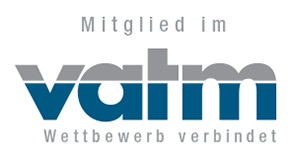Communication in a crisis situation
Security incidents in companies that lead to the failure of critical services or massive data loss require comprehensive publicity and communication with customers, partners and suppliers. Through strategic stakeholder and media communication, we ensure that the crisis does not overwhelm you.

Tasks
We take care

If your data, networks and IT systems have fallen victim to malicious activities, or if you are affected by a major outage that occurred without criminal intent - we stabilise the situation, plan the appropriate response with you in coordination with supervisory authorities and law enforcement, and advise you on the proper wording and strategic direction of communication with all affected parties and the media. To ensure you always remain in control of the situation, we offer you:
- Strategic crisis communication
- Overview of the situation and initial plans for public communication
- Coordination and speech regulation for management, legal department, data protection and information security officer, IT, security, sales and communications departments
- Communicative support in eliminating the cause and restoring operations
- Definition of key messages and transparent communication to stakeholders
- Action packages
- Establishment and management of the crisis communication task force
- Media training for the "faces of the crisis" (managing directors / company spokespersons)
- Stakeholder identification and targeted addressing of target groups (directly affected or other customers, business partners, politicians and authorities, media and, of course, your own employees)
- Monitoring of media and social media platforms
- Press releases, statements, customer mailings, formulation aids for the entire communication chain
Are you interested in or have a specific need for one of the topics listed? Please contact us.
Benefits
At a glance
Communication professionals
We tell you what, how and when you should, must or can communicate - so that you can get ahead of the situation.
Media expertise
For your public relations work and internal communication, we present handouts and formulations that help you to master the crisis as language rules.
Keep calm, radiate security
We keep the initiative when it comes to external presentation and internal communication. And we fulfil expectations and prevent disappointment when your stakeholders get in touch.
Informatoions
Background and details
There are many reasons why companies can come under public pressure. Some are self-inflicted, such as scandals involving contaminated meat or criminal behaviour like accounting fraud. Others arise unexpectedly - incidents can occur due to earthquakes or power outages, but IT systems in particular are often targeted by malicious attacks from third parties, sometimes causing devastating damage.
In such a crisis, it is important to find the right form of communication both internally and externally. Well-functioning crisis communication takes into account the entire context of the case: what happened, what caused it, how can it be resolved? In order to calm the minds of customers and suppliers, the company's own shareholders or suppliers, a skilful balance must be struck between transparency and restraint when deciding what needs to be communicated and when.
This is because such a crisis often continues in the form of false or unconvincing communication. Many companies are reluctant to disclose unpleasant truths and often there is not enough information about the extent of the incident to appear confident in public. Was there a leak of personal data or not? Does your own IT department know exactly what has happened, or do experts need to be called in to check the infrastructure that has been attacked? What responses are necessary?
What to do? Waiting until enough information is available is not an option - the press has long since got wind of it, as have the competitors. Crisis communication always tries to swim in front of the wave: The more actively you address stakeholder expectations through your own announcements, customer mailings, interviews and other contributions, the more understanding there will be for the crisis and the efforts to resolve it. Even the amount of fines for data protection violations can be positively influenced if the factors of the crisis are dealt with conscientiously and openly.
Even companies with decades of experience in public relations can be thrown off course by a crisis: What if a cyber attack has taken all the IT systems with it? Put the mail server out of action? All the usual means of communication knocked out of your hands? It's not so easy to restore the technical conditions to the point where targeted communication is even possible. And time is running out: the first journalists may already be calling, customers are extremely nervous about the outage, surely something has to be said to them?
When the basic functions are up and running again, many people are still at a loss as to what has actually happened and how they should be informed. How do you manage the balancing act between your own lack of knowledge and providing the most comprehensive information possible to affected customers or other stakeholders? What information needs to be reported to the supervisory authorities - and by when?
The basics of communicating correctly in a crisis include:
- Reliability - providing every statement with a clear perspective
- Expectation management - inform early, update regularly
- Comply with language rules - clear statements, no speculation
- Openness - always answer enquiries, but also angry protests
It is clear that exceptional circumstances must be cushioned by communication in such a way that the company can concentrate on eliminating the causes and restoring operations. Incorrect and inappropriate communication ties up far more resources that are needed for the actual tasks than successful crisis communication.
Team
Reliable contacts
From the initial consultation to the finalised security concept, we are by your side and ensure that you are optimally positioned in accordance with the legal requirements with minimal effort.


Mathias Handsche
Managing Director
Contact us
We are here to help you
Contact us by mail, in person or by e-mail!










